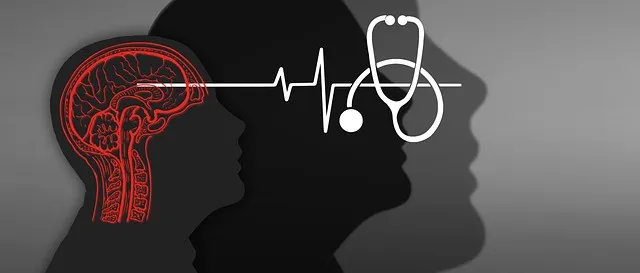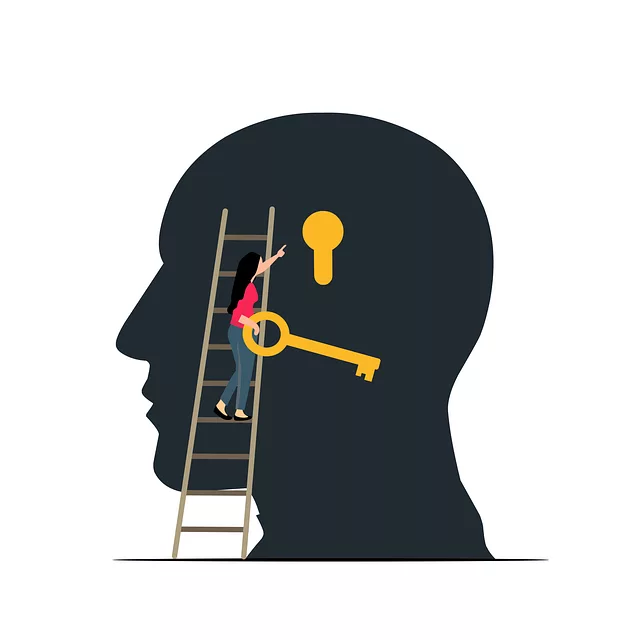Kaiser Permanente Mental Health Lakewood prioritizes Emotional Intelligence (EI) as a key component of well-being and effective mental healthcare. They focus on individual mood management strategies for personal growth, along with cultural sensitivity to cater to diverse community needs. Through self-awareness, social awareness, and practical emotion management techniques like mindfulness, they empower individuals to lead happier lives and foster compassion within the community. Healthcare professionals at Kaiser Permanente Lakewood cultivate EI to improve their well-being and patient care, enhancing connections in high-pressure settings.
“Unleash your full potential with emotional intelligence (EI) – a powerful tool for personal growth and well-being, as highlighted at Kaiser Permanente Mental Health Lakewood. This article delves into the essence of EI, starting with understanding its significance in modern life. We explore key components: self-awareness, social awareness, and emotion regulation. By enhancing these skills, individuals can foster better mental health, strengthen relationships, and navigate challenges effectively, as demonstrated by Kaiser Permanente’s commitment to holistic wellness.”
- Understanding Emotional Intelligence: A Key to Well-being at Kaiser Permanente Mental Health Lakewood
- The Importance of Self-awareness in Building Emotional Intelligence
- Enhancing Social Awareness and Empathy for Effective Communication
- Practical Strategies for Managing and Regulating Emotions
- Cultivating Emotional Intelligence for Better Mental Health and Relationships
Understanding Emotional Intelligence: A Key to Well-being at Kaiser Permanente Mental Health Lakewood

At Kaiser Permanente Mental Health Lakewood, we recognize that emotional intelligence (EQ) is a cornerstone of well-being and effective mental healthcare. EQ encompasses the ability to understand, manage, and express one’s own emotions, as well as empathize with and navigate the feelings of others. This multifaceted skill set is crucial not just for personal growth but also for fostering strong connections within our communities.
Our approach to building emotional intelligence emphasizes both individual mood management strategies and cultural sensitivity in mental healthcare practice. By equipping individuals with tools to recognize and regulate their emotions, we empower them to lead happier, more fulfilling lives. Additionally, promoting cultural sensitivity ensures that our care is tailored to meet the unique needs of each client, enhancing mental wellness for all members of our diverse community.
The Importance of Self-awareness in Building Emotional Intelligence

In the journey to build emotional intelligence, self-awareness stands as a cornerstone. It’s about recognizing and understanding your emotions—both your own and those around you. This fundamental aspect empowers individuals from Kaiser Permanente mental health Lakewood with the ability to navigate complex social interactions, foster healthier relationships, and make more thoughtful decisions. By cultivating self-awareness, one gains insights into their emotional triggers, strengths, and vulnerabilities, paving the way for significant personal growth.
Furthermore, heightened self-awareness facilitates better emotional regulation, a skill crucial in managing stress and anxiety relief. It enables individuals to respond mindfully rather than reacting impulsively to challenging situations. As part of a holistic approach to mental health, incorporating self-care routine development becomes more meaningful, allowing for proactive management of emotional well-being.
Enhancing Social Awareness and Empathy for Effective Communication

At Kaiser Permanente mental health Lakewood, we recognize that enhancing social awareness and empathy is a cornerstone for effective communication and fostering healthy relationships. By promoting active listening and nonverbal cues, individuals can better understand others’ perspectives and emotional states. This heightened social awareness allows for more meaningful connections, reducing misunderstandings and conflicts in personal and professional settings.
Our Community Outreach Program Implementation includes initiatives like the Mental Wellness Podcast Series Production, designed to engage and educate community members on various aspects of mental health. Through these platforms, we share practical strategies for improving empathy, such as cultivating mindfulness and emotional regulation skills. By equipping individuals with tools to manage their own emotions, we empower them to offer supportive and empathetic interactions with others, ultimately contributing to a more compassionate and connected community.
Practical Strategies for Managing and Regulating Emotions

Managing and regulating emotions is a key aspect of emotional intelligence development, and it’s an area where practical strategies can make a significant difference. At Kaiser Permanente mental health Lakewood, we encourage individuals to adopt several simple yet effective techniques. One powerful tool is mindfulness meditation, which helps individuals become more aware of their emotions in the present moment without judgment. Regular practice allows for better understanding and control over emotional responses.
Additionally, building self-esteem improvement skills is vital. This involves challenging negative thoughts and cultivating a positive self-image, enabling individuals to navigate emotional crises with greater resilience. The team at Kaiser Permanente mental health Lakewood also emphasizes the importance of crisis intervention guidance, providing tools to recognize and manage intense emotions during stressful situations.
Cultivating Emotional Intelligence for Better Mental Health and Relationships

Cultivating Emotional Intelligence (EI) is a powerful tool for enhancing mental health and strengthening relationships, particularly in high-pressure environments like healthcare settings. According to Kaiser Permanente mental health Lakewood experts, EI involves recognizing, understanding, and managing one’s own emotions while also empathizing with others. This skill set can significantly improve the well-being of healthcare providers, who often face challenging situations that contribute to burnout.
By incorporating practices such as Mindfulness Meditation into their routines, healthcare professionals can develop a deeper awareness of their emotional states. This heightened self-awareness fosters better stress management and enhances the quality of patient care. Moreover, EI helps in building stronger connections with patients and colleagues, reducing conflicts and promoting a more positive work environment. These strategies are vital for burnout prevention among healthcare providers, ensuring they remain engaged, compassionate, and effective in their roles.
Emotional intelligence is a powerful tool for enhancing well-being, as demonstrated by Kaiser Permanente Mental Health Lakewood’s commitment to this field. By fostering self-awareness, social awareness, and empathy, individuals can improve their emotional regulation and communication skills, leading to better mental health and more fulfilling relationships. Implementing the practical strategies outlined in this article, inspired by Kaiser Permanente’s initiatives, can help navigate life’s challenges with greater resilience and understanding, ultimately enriching our personal and professional lives.






